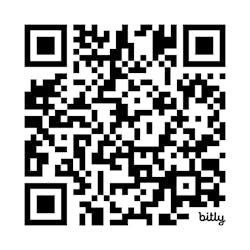In the article on page 22 looking at the rise of smart locks, I examine the influence that the smart phone, as a mobile credential, is having on this increased interest in smart locks – and let’s face it – on the entire access control market.
When I asked Sanjit Bardhan, HID’s Vice President and Head of Global Mobile Business, earlier this year if the phone is winning out as the credential of choice within security, he said, “Yes, phones are becoming a top form factor of choice for consumers. Mobile IDs, defined as digital IDs stored on and authenticated via mobile devices, are rapidly gaining adoption.”
In fact, according to HID’s most recent State of Physical Access Control Report, 66% of users have already upgraded to mobile readers or plan to do so, while 41% of respondents say that mobile access would be one of the top features required in a new access control system.
“The infrastructure to support digital transactions grew during the past two years, alongside the need to offer contactless transactions,” said Bardhan. “In tandem, the adoption of mobile wallet apps that house digital identities on mobile devices also grew.”
Digital wallets, which comprised 48.6% of e-commerce transaction value worldwide in 2021, or just over $2.6 trillion, are projected to rise to 52.5% of transaction value in 2025, driven by the popularity of digital wallets from major players such as Amazon, Apple, Google, and PayPal, according to HID.
“That’s because they make the online shopping experience much easier while enabling users to store multiple payment applications on a single device,” Bardhan explains. “Expanded capabilities allow iPhone users to add keys, IDs and digital documents directly in the wallet app. These include, but are not limited to, driver’s licenses in eight states, verifiable COVID-19 vaccination information, employee badges, student IDs and hotel room keys.”
Speaking of student IDs and room keys, my son’s college switched from prox cards to full mobile access this year, following the lead of many colleges and universities across the U.S.
And it is not just schools. The way people are looking at access control has certainly shifted dramatically over the past few years as connected technologies play a more integral role in physical security and how we secure physical spaces.
Locksmith Ledger is tackling this very topic in the first of what will be a regular webcast series on topics that are important to locksmiths. Our first webinar, Strategies to Convert Entryways to Electronic Access Control, on Dec. 7, at 3 p.m. ET, will feature Glenn Younger, owner, Grah Safe and Lock, based in San Diego, Calif., and Joshua Sands, owner, Key City Locksmith and Security in Kansas City, Mo., with yours truly moderating. Be sure to register for free using the QR code and participate in the Q&A we have planned as part of this thought-leadership session. CEUs are available through ALOA for this webinar. Hope to see you there!
About the Author
Paul Ragusa
Senior Editor
Paul Ragusa is senior editor for Locksmith Ledger. He has worked as an editor in the security industry for nearly 10 years. He can be reached at [email protected].
